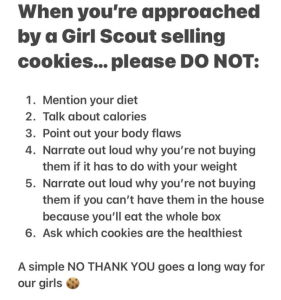How can we foster healthy body image in today’s world?
Content Warning (CW): mentions of disordered eating, symptoms related to eating disorders
“I don’t want to be more than 100 lbs.”
“I saw that one of the side effects of my medication is weight gain, and I’m already insecure about my body. Can I change to something different?”
I’ve heard these quotes from my patients just in the past week. Imagine the number of verbalizations I hear daily that have similar undertones.
 Although my focus is psychiatric medication management, to assess the whole individual properly, I have subjects of focus that I routinely ask about, including sleep, home life, peer relationships, and appetite. I know it’s seemingly random to ask about this, but changes in appetite can signal mood shifts, adverse effects to medications, and, of course, disordered eating patterns. While I’m tasked with screening for pathological disorders and evaluating for further treatment, I’m also in a unique position to educate children and adolescents about healthy eating, physical activity, and fostering positive body image.
Although my focus is psychiatric medication management, to assess the whole individual properly, I have subjects of focus that I routinely ask about, including sleep, home life, peer relationships, and appetite. I know it’s seemingly random to ask about this, but changes in appetite can signal mood shifts, adverse effects to medications, and, of course, disordered eating patterns. While I’m tasked with screening for pathological disorders and evaluating for further treatment, I’m also in a unique position to educate children and adolescents about healthy eating, physical activity, and fostering positive body image.
I think a lot about my upbringing when it comes to this topic. I grew up in an only-child household with a father who was highly regimented and strict, particularly related to nutrition and exercise. He was a college athlete who experienced an unhealthy upbringing and chronic illness, so he was determined to forge a different experience for himself and, of course, for me.
Now, do not get me wrong. I attribute my interest in proper nutrition primarily to him. However, there’s a lot that I have to unlearn because now, as an adult, I see how some of those schools of thought have negatively shaped my attitudes about my body. Needless to say, when you know better, you do better, right? So, this topic is near and dear to me because personally, I work on this daily.
I just saw an article in my e-mail titled “What Peanut Butter Does to Your Waistline.” I mean, come ON. This message is kind of ridiculous. Pair that with social media messages and images that are unrealistic and not research-based; it’s exceedingly difficult to know how to sift through it all. So that poses the question: how can we, as parents, guardians, and caregivers, rear children and adolescents to have a positive body image in a society inundated with so many mixed messages?
 I’m faced with this question as a clinician and a new mom who strives to raise an emotionally adaptive son. I think this is where I provide a disclaimer because unconscious bias is real. Traditionally speaking, body image challenges are almost always associated with women. I’m here to tell you that this topic also affects young boys and men. Statistics show that about 25% of men report body dissatisfaction; this percentage is from 2019, so I can only imagine that the rate is higher now, especially after living through a pandemic. That second quote at the start of this post about wanting to change medications due to possible weight gain and body insecurity? A young male in my clinic made that statement. So you can see how this topic affects our children and teens regardless of biological sex and/or gender.
I’m faced with this question as a clinician and a new mom who strives to raise an emotionally adaptive son. I think this is where I provide a disclaimer because unconscious bias is real. Traditionally speaking, body image challenges are almost always associated with women. I’m here to tell you that this topic also affects young boys and men. Statistics show that about 25% of men report body dissatisfaction; this percentage is from 2019, so I can only imagine that the rate is higher now, especially after living through a pandemic. That second quote at the start of this post about wanting to change medications due to possible weight gain and body insecurity? A young male in my clinic made that statement. So you can see how this topic affects our children and teens regardless of biological sex and/or gender.
A friend of mine (shout out to Lauren Cappell) once told me that I’m always good with the reframe. She meant that I could take a negative statement or sentiment and reframe it differently to highlight the positive. Honestly, it’s what I do in clinical practice and will do with Samuel. And can I be transparent? I’m working on doing this with myself. When I find myself being overly self-critical, I take a moment and reframe the thought. Instead of criticizing certain body parts, I verbalize appreciation for a strong body, as it has housed both uterine fibroids and a human being. I appreciate the opportunity to age and grow older because it’s not an opportunity afforded to others. I do the same with my patients; when my patients engage in negative self-talk about body image, I encourage them to reframe their thoughts and focus on healthy choices.
Most of the time, when we all spiral into negative thoughts and self-talk, it’s largely because we feel a loss of control. Our children and teens are no different. So, the less complicated answer is to focus on what we CAN control and help them to do the same. We can focus on nourishing our bodies and theirs with healthy food options. We can use this as an opportunity to reframe: instead of eating healthy food to lose weight or to meet a specific numerical goal, healthy foods nourish our bodies for healthy energy and can positively influence our moods. We encourage movement not as a punishment for past choices but as gratitude for the ability to do so and help to manage stress more adaptively.
When we hear our children and teens make negative or critical statements:
- Use this to facilitate open-ended communication so that he/she can openly discuss feelings and concerns about body image.
- Use compliments and positive reinforcement that have nothing to do with physical appearance.
- Monitor YOUR self-talk and verbalizations; the kids are watching the examples we set.
If you follow me on IG, I re-posted a meme about statements that should not be said when a Girl Scout offers to sell someone cookies. The long and short of the message was to refrain from making statements that encourage dieting, restriction, or weight management as the reasons for declining cookies. This is so important because although the intent is likely innocuous, we are reinforcing the very messaging we want to avoid with our children.

I’m not Sway, so I don’t have all the answers (IYKYK). I’m just another adult trying to do my part with future generations, both inside my home and otherwise. Parenting and raising our children mean parenting ourselves and creating emotionally safe spaces for our children and teens. This is no exception.
*If you are concerned about severe body-image challenges, significant weight changes, disordered eating patterns (restriction, bingeing/purging), or excessive exercise, I strongly encourage seeking professional support. The first quote at the start of this post is an example of a statement that warranted additional professional support. This patient is actively starting therapy in addition to seeing me for medication management. Talk with your child’s pediatrician and seek the appropriate referrals. There is never any shame in pursuing professional help. *










